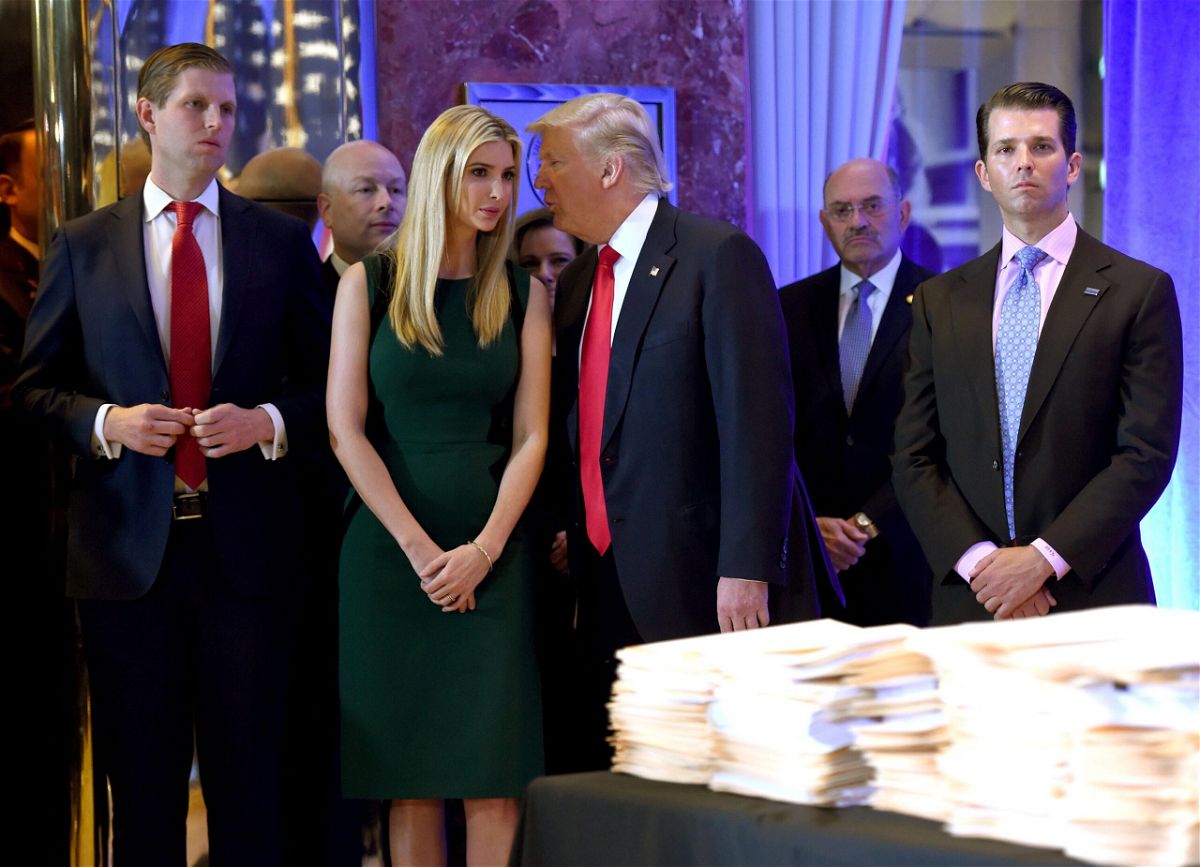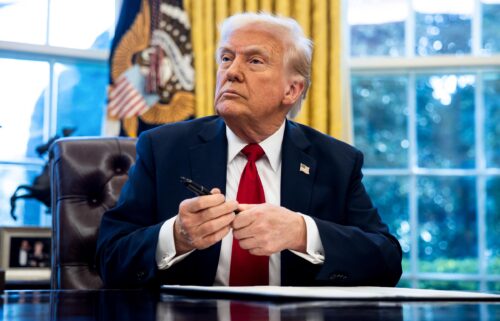Takeaways and new details from the New York AG’s investigation into Trump’s business empire

By Kara Scannell
New York Attorney General Letitia James laid out new, specific details about what her office believes to be “misleading or fraudulent” financial statements from former President Donald Trump’s business empire in a late-night court filing on Tuesday.
The new filing seeks to compel the testimony of Trump, Donald Trump Jr. and Ivanka Trump as part of her civil investigation into the Trump Organization.
James alleged since initiating the investigation in 2019 that her office has uncovered “significant” evidence “indicating that the Trump Organization used fraudulent or misleading asset valuations to obtain a host of economic benefits, including loans, insurance coverage, and tax deductions.”
Trump has denied wrongdoing, and a spokesperson for the Trump Organization said in a statement that the “allegations are baseless and will be vigorously defended.”
Here are some key insights from the attorney general’s filing:
Trump’s penthouse value may have been inflated
In 2015, Trump reported the value of his Trump Tower penthouse at $327 million, derived from an assessment that the apartment was 30,000 square feet. But in 2017, the value of the penthouse was changed to $116.8 million, reflecting its accurate square footage of 10,996.39 square feet.
James’ office said Trump Org. CFO Allen Weisselberg admitted the value had been overstated in earlier years.
“The valuations of Mr. Trump’s triplex in the 2015 and 2016 were overstated almost by a factor of three, as Mr. Weisselberg conceded in his testimony. Mr. Weisselberg admitted that this amounted to an overstatement of “give or take” $200 million,” according to the filing.
(Separately, Weisselberg has been charged with 15 counts of fraud. He has pleaded not guilty.)
40 Wall Street
In 2010, as part of a loan modification, appraisers valued Trump’s stake in this commercial building at $200 million. That appraisal, based on the terms of the ground lease, was revised to $260 million in 2012.
But it’s alleged Trump valued the building much higher on his financial statements.
“During the same period, Mr. Trump presented a value for 40 Wall Street on his Statements of Financial Condition of $601.8 million in 2010, $524.7 million in 2011, $527.2 million in 2012, and $530.7 million in 2013,” the New York attorney general alleged. The values differed from the Trump Organization’s own contemporaneous budgets, according to the filing.
‘He did not want things put in writing’
James’ office alleges that the Trump Organization had a pattern of not putting things in writing.
One witness, described in the filing as representing Trump in the lower Hudson Valley where his Seven Springs estate and numerous golf courses are located, testified that he spoke directly with Trump “about once a week.” And, according to the filing, “he ‘seldom’ communicated in writing with Trump because Mr. Trump stated to him ‘that he did not want things put in writing in communications between us.'”
Trump’s long-time tax attorney Sheri Dillon, who advised Trump on the Seven Springs estate, wrote in an email to an associate working with her about an appraisal being conducted by Cushman and Wakefield “to ‘call [Cushman appraiser] Tim [Barnes] and advise him to limit substantive emails with Scott Blakely (engineer) and instead use the phone to the extent possible (want to avoid creating discovery unnecessarily),'” according to the filing.
In a second email to the same associate and included in the filing, Dillon wrote, “Please use a fresh email when communicating with appraisers so that we avoid to the extent possible, email chains.”
The same associate also testified that he inserted comments on the draft of an appraisal using Microsoft Word track changes but instead of emailing the document, printed it out with the track changes and mailed it to the appraiser, which he did as part of the practice of “avoiding email.”
Trump’s file cabinet
Trump has said he does not use email. James’ office said they learned from witnesses that Trump kept hard copies of documents and used sticky notes to communicate with employees. They said a file cabinet pertaining to Trump’s records was never searched to comply with a subpoena.
“This file was never searched because the Trump Organization determined, improbably, that Mr. Trump was not involved in the preparation of his own financial statements,” they wrote.
500 questions
In depositions, the attorney general says Eric Trump and Weisselberg answered few questions before asserting their Fifth Amendment rights against self-incrimination to more than 500 questions each.
Individuals have a constitutional right against self-incrimination in criminal cases. In a civil case, a judge can instruct a jury that they can draw an adverse inference against an individual for declining to answer questions.
Trumps’ lawyers are trying to block the subpoenas for Trump, Trump Jr. and Ivanka Trump, alleging James is trying to end run the grand jury process because her office is involved in the criminal investigation led by the Manhattan district attorney.
Civil charges are possible by April 30
Last Fall, during an ongoing dispute over the Trump Organization turning over documents, particularly related to those maintained by the former president, the Trump Organization agreed to extend, or “toll” in legal parlance, the litigation beyond the statute of limitation, with an option that would allow the attorney general to extend it again until April 30, 2022.
James exercised that option, indicating that late April may be a real deadline for when the state would move to file civil charges, if warranted, unless a further tolling agreement is reached.
The-CNN-Wire
™ & © 2022 Cable News Network, Inc., a WarnerMedia Company. All rights reserved.


